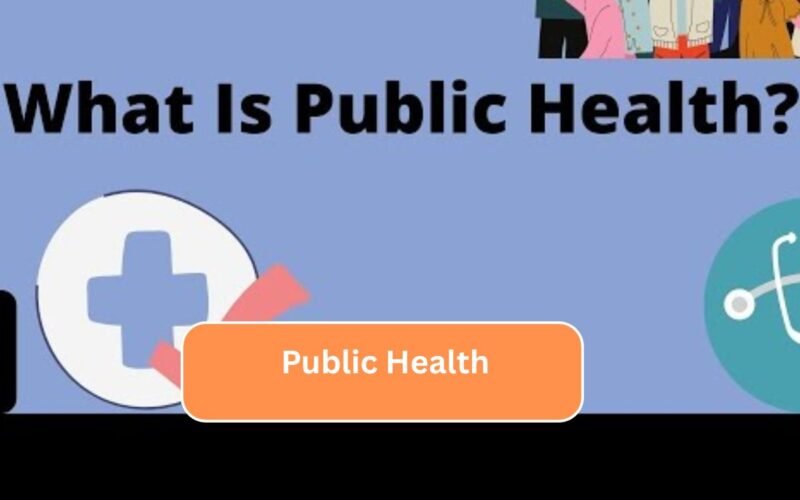Public Health is a multidisciplinary field focused on protecting and improving the health of populations. It emphasizes disease prevention, health promotion, and the development of policies and programs that enhance the quality of life for communities. Public health professionals work to address health challenges at local, national, and global levels.
What is Public Health?
Public Health is the science and practice of preventing disease, prolonging life, and promoting health through organized efforts and informed choices of society, organizations, communities, and individuals. Unlike clinical medicine, which focuses on treating individual patients, public health aims to improve the health outcomes of entire populations.
Key Areas of Public Health
- Epidemiology:
- Study of disease patterns, causes, and effects in populations
- Tracking outbreaks and analyzing health trends
- Health Policy and Management:
- Developing, implementing, and evaluating health policies
- Managing healthcare systems and public health programs
- Environmental Health:
- Addressing environmental factors that affect health, such as air and water quality, sanitation, and waste management
- Community and Behavioral Health:
- Promoting healthy lifestyles and behaviors through education and interventions
- Addressing social determinants of health
- Global Health:
- Tackling health issues that cross borders, such as pandemics and malnutrition
- Collaborating with international organizations to improve health worldwide
- Biostatistics:
- Using statistical tools to analyze health data and guide public health decisions
Importance of Public Health
Public Health plays a vital role in ensuring the well-being of societies:
- Disease Prevention: Reduces the incidence of infectious and chronic diseases.
- Health Promotion: Encourages healthy lifestyles and behaviors.
- Policy Development: Shapes healthcare policies for equitable access and improved outcomes.
- Emergency Preparedness: Responds to pandemics, natural disasters, and health emergencies.
- Community Empowerment: Educates populations about health risks and preventive measures.
Skills Required in Public Health
Public health professionals require a combination of analytical, communication, and leadership skills:
- Knowledge of epidemiology, biostatistics, and health sciences
- Research and data analysis capabilities
- Public health policy and program planning skills
- Communication and community outreach abilities
- Problem-solving and critical thinking skills
- Leadership and project management
Career Opportunities in Public Health
Graduates can explore various roles in government, healthcare, research, and international organizations:
- Epidemiologist
- Public Health Analyst
- Health Educator or Community Health Worker
- Environmental Health Specialist
- Policy Advisor or Health Program Manager
- Biostatistician
- Global Health Specialist
- Researcher or Academic in Public Health
The Future of Public Health
The COVID-19 pandemic highlighted the critical importance of public health in managing global health crises. Emerging areas such as digital health, telemedicine, data-driven epidemiology, and health equity initiatives are shaping the future of the field. Public health professionals will continue to play a pivotal role in addressing health disparities, promoting preventive care, and preparing communities for future health challenges.
Conclusion
Public Health is an essential field dedicated to improving the health and well-being of populations. For those passionate about healthcare, policy, and community service, it offers rewarding careers with the opportunity to make a meaningful impact on society. By combining science, policy, and community engagement, public health professionals work to create healthier, safer, and more resilient communities worldwide.




